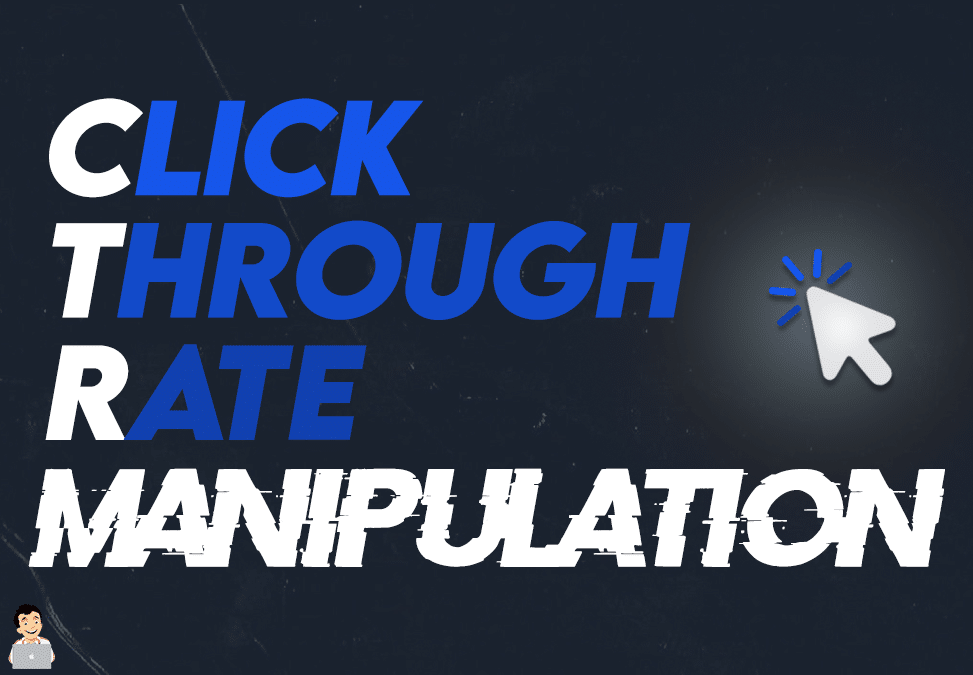Exploring the Relationship In Between CTR Manipulation Providers and User Habits
In the world of digital advertising and marketing, the impact of click-through rate (CTR) manipulation services on customer actions remains a complicated and intriguing subject. As on the internet systems increasingly count on CTR metrics to gauge the success of content, products, and services, comprehending just how these adjusted rates impact individual interaction and decision-making procedures is paramount. The interplay between CTR manipulation and individual habits elevates inquiries concerning credibility, trustworthiness, and the ethical implications of such methods. By dissecting the intricate relationship in between CTR adjustment services and individual actions, interesting insights emerge that may improve our understanding of electronic advertising and marketing strategies and their effects on consumers.
Effect of CTR Manipulation on Actions
Assessing the impact of Click-Through Rate (CTR) adjustment on customer habits reveals essential insights right into the dynamics of online interaction. CTR control involves unnaturally pumping up the number of click a specific web link or ad to deceive customers and internet search engine. This method can result in an altered understanding of a webpage's appeal or significance, ultimately affecting user habits.

In addition, CTR manipulation can alter the information used by algorithms to individualize user experiences. This can lead to customers being served content that does not line up with their choices or interests, eventually bring about a decrease in user fulfillment and involvement. Understanding the effect of CTR control on customer habits is essential for preserving transparency and rely on on-line interactions.
User Interaction With Controlled CTR
Individual involvement with adjusted CTR information often results in skewed understandings of on the internet material appeal and significance. When individuals engage with web content based upon synthetically inflated Click-Through Rates (CTR), they may think that particular details, items, or solutions are extra preferred or reliable than they in fact are. This can cause customers choosing based upon misleading information, causing potentially undesirable outcomes.
Engagement metrics like likes, shares, remarks, and time invested in a web page are commonly affected by CTR control. Users might be extra likely to engage with content that shows up to have greater interaction rates, better bolstering the cycle of manipulated perceptions. As an outcome, content creators and advertisers might prioritize creating content that generates high CTR as opposed to concentrating on creating truly useful and appropriate material.

Emotional Impacts of CTR Control

Moreover, the emotional results of CTR control can also show up in transformed decision-making processes. Users might be much more inclined to click material solely based upon its viewed appeal, instead than its actual worth or significance to their needs. This behavior change can cause a surface engagement with on the internet material, where users might neglect top quality yet less popular offerings in support of those with artificially enhanced CTRs.
Basically, the emotional ramifications of CTR adjustment highlight the value of maintaining openness and credibility in on the internet communications to foster real user interaction and depend on.
Ethical Considerations in CTR Adjustment
Thinking about the moral implications of adjusting click-through rates (CTR) in on the internet systems is necessary for maintaining stability and trust fund within the digital environment. CTR manipulation raises worries about deceiving individuals, misshaping data analytics, and jeopardizing the credibility of online material. One significant moral consideration is the prospective effect on customer autonomy and decision-making. By artificially pumping up CTR, individuals might be misled into clicking on links or ads they would certainly not have actually picked or else, leading to a disingenuous online experience. Furthermore, CTR control can alter the efficiency metrics that organizations count on to make strategic choices, inevitably influencing market competitors and customer trust.
An additional honest aspect to ponder is the justness of manipulating CTR to acquire an unfair advantage over competitors. Taking part in such techniques not only breaks concepts of fair game however also threatens the depend on that individuals place in on-line systems. It is vital for businesses and electronic marketers to promote honest standards in their techniques to guarantee openness, integrity, and long-lasting view it sustainability in the online atmosphere.
Implications for Digital Advertising And Marketing
With the enhancing dependence on digital systems for advertising objectives, the method of adjusting click-through rates (CTR) poses considerable implications for the performance and integrity of electronic marketing methods. CTR manipulation can cause manipulated data analytics, misdirecting marketing professionals right into believing that their projects are performing much better than they in fact are. This can result in misallocation of sources, with firms purchasing underperforming approaches based on falsified CTRs. Additionally, when users recognize that CTRs have actually been manipulated, it can wear down rely on the brand, resulting in lasting adverse consequences for client loyalty and brand name credibility.
Furthermore, using CTR adjustment services can develop an unreasonable competitive landscape, where firms that involve in such practices acquire a man-made benefit over those that follow honest advertising and marketing requirements. This can suppress advancement and imagination in digital marketing, as success comes to be even more regarding manipulation tactics than supplying authentic worth to consumers. Inevitably, the effects of CTR adjustment for electronic advertising and marketing expand past temporary gains, impacting the total sustainability and credibility of advertising efforts in the electronic realm.
Conclusion
To conclude, the connection between CTR adjustment services and individual habits is complex and diverse. The influence of my latest blog post CTR control on habits, customer interaction with controlled CTR, psychological effects, moral considerations, and effects for electronic marketing all play a function in forming this connection. Understanding these characteristics is important for marketing professionals and researchers alike in order to navigate the moral ramifications and take full advantage of the performance of their digital advertising and marketing techniques.